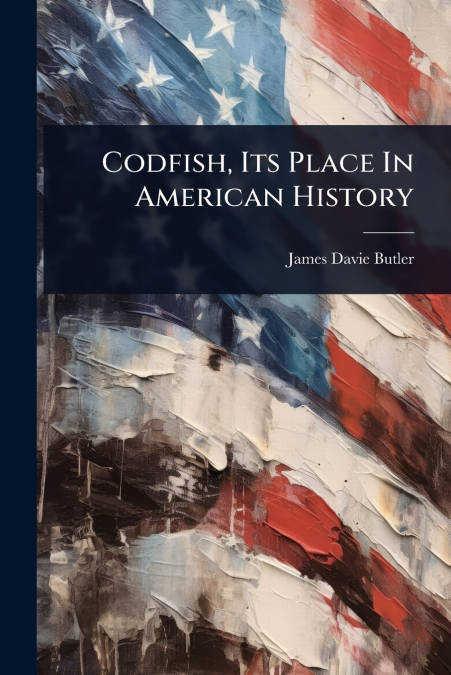
James Davie Butler
Explore the surprising and significant role of codfish in the shaping of American history with James Davie Butler’s meticulously researched account, 'Codfish, Its Place In American History.' This engaging work delves into the profound impact of this seemingly humble fish on the economic, social, and political landscape of the United States, particularly in New England. From its influence on early trade routes and colonial economies to its symbolic representation of American resilience and resourcefulness, the codfish emerges as a central figure in the nation’s development. Butler masterfully weaves together historical facts, anecdotes, and insightful analysis to reveal the codfish’s enduring legacy. Discover how this abundant resource fueled maritime industries, shaped trade policies, and contributed to the cultural identity of a burgeoning nation. 'Codfish, Its Place In American History' is a must-read for anyone interested in understanding the intricate connections between natural resources, economic growth, and national identity.This work has been selected by scholars as being culturally important, and is part of the knowledge base of civilization as we know it. This work was reproduced from the original artifact, and remains as true to the original work as possible. Therefore, you will see the original copyright references, library stamps (as most of these works have been housed in our most important libraries around the world), and other notations in the work.This work is in the public domain in the United States of America, and possibly other nations. Within the United States, you may freely copy and distribute this work, as no entity (individual or corporate) has a copyright on the body of the work.As a reproduction of a historical artifact, this work may contain missing or blurred pages, poor pictures, errant marks, etc. Scholars believe, and we concur, that this work is important enough to be preserved, reproduced, and made generally available to the public. We appreciate your support of the preservation process, and thank you for being an important part of keeping this knowledge alive and relevant.